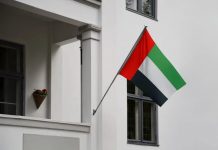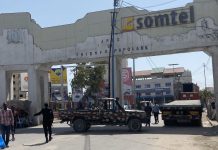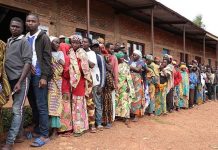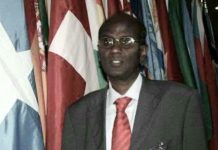Mogadishu (UM) – For a May Day special report, UM interviewed Somalis on the challenges of finding employment and the implications of joblessness in a country where over 70% of the population is youth.
Unemployment in Somalia is at a record high as most of the country recovers from the civil war. Although there are no reliable statistics of Labour market participation, the fact remains most Somalis are unemployed despite the new government’s promise to create more opportunities under the Nabad and Nolol banner.
“I have a degree and a masters from Ethiopia and I have been unemployed for 2 years,” said Mohamed Hassan from Hargeisa. “Instead of going to work and supporting myself, I spend a lot of time in coffee shops because I find it a shame to stay home with my mum every day.”
“I am looking for work for the last 4 years and in Garowe there are few opportunities,” said Nur Elmi Mahamud, a political science graduate. “You have to know someone important to get a job with the government and the private sector is small.”
All interviewed by UM are still seeking employment and those lucky enough to have some form of work, are working for family members on uncertain terms without prospects.
“I went to India to educate myself and I returned home to work in my dad’s grocery store. I understand things are tough, but I didn’t know how hard it was going to be,” said Liban Ahmed from Mogadishu.
“It is disappointing that I can’t move on with my life because I have no work now but I am still hopeful. I interviewed for a job with a NGO and I am waiting for them to respond to me,” said a mid-career media professional who did not want to be named. “For this one job I applied over 300 other people applied within Somalia.”
Unemployment in Somalia is extremely high and the best employer, according to interviewees, are NGOs and the Government. The private sector is not much favoured by job seekers due to exploitation and lack of regulations and laws.
“The Somali private sector is small and very exploitative,” said an employee of a large Somali business who did not want to be named. “Private companies usually employ family members, pay poorly and mistreat staff. There is also no career development.”
“I have worked in the private sector for 6 years but I have worked in one role and earned $300 all the time,” said another former employee of a large money transfer company. “Now if I wanted to go back and work for my former employer they would not employ me because they are cutting jobs because everybody is an agent and not a worker.”
Most of the work seekers interviewed are thinking about starting their own business but this itself has many challenges. This is a policy that the international partners and the Somali government has committed to supporting.
“Everybody is advising us to open our own business but with what money? Even if I have the money to start, who do I sell to because most people in Somalia are unemployed,” said Farah Jama a recent graduate in business from Mogadishu.
“Opening a business in Somalia is hard because there are too many big companies destroying the market by selling everything everywhere,” said Amina Sheikh who runs a struggling cosmetics shop in Hamarweyne Market in Mogadishu. “Do you know Hormuud, the biggest telecommunication company sell honey and milk too?”
The cost of unemployment has been devastating on all interviewees. Many feel inadequate, ashamed and betrayed.
“The government and international community bombard us with a message of progress but I don’t think we are going to see the fruits of this in our lifetime,” said Nura Aden, an unemployed teacher. “I have another year to find work and I think I will just look for marriage to save myself from despair and shame.
“If the government cannot create jobs for this generation, then it should help them to open businesses and provided skills and education for them to compensate but it does not seem like this is going to happen any time soon,” said an angry waiter with a masters who did not want to be named. “With my education I am lucky to be serving tea and coffee in Mogadishu.”



























